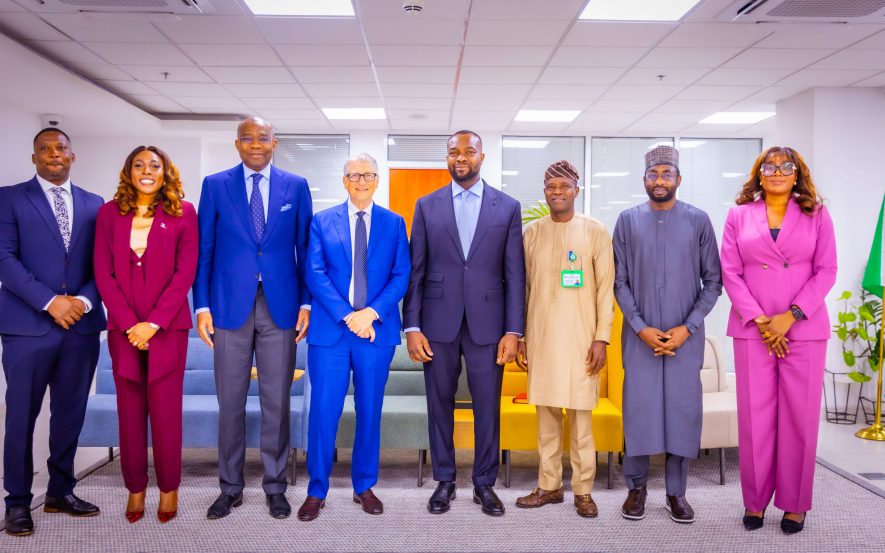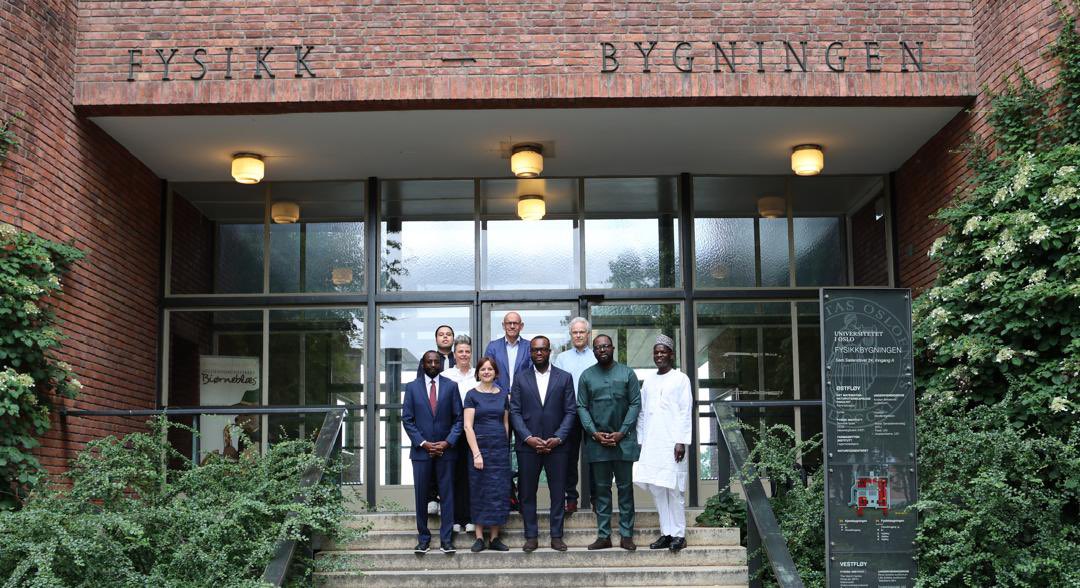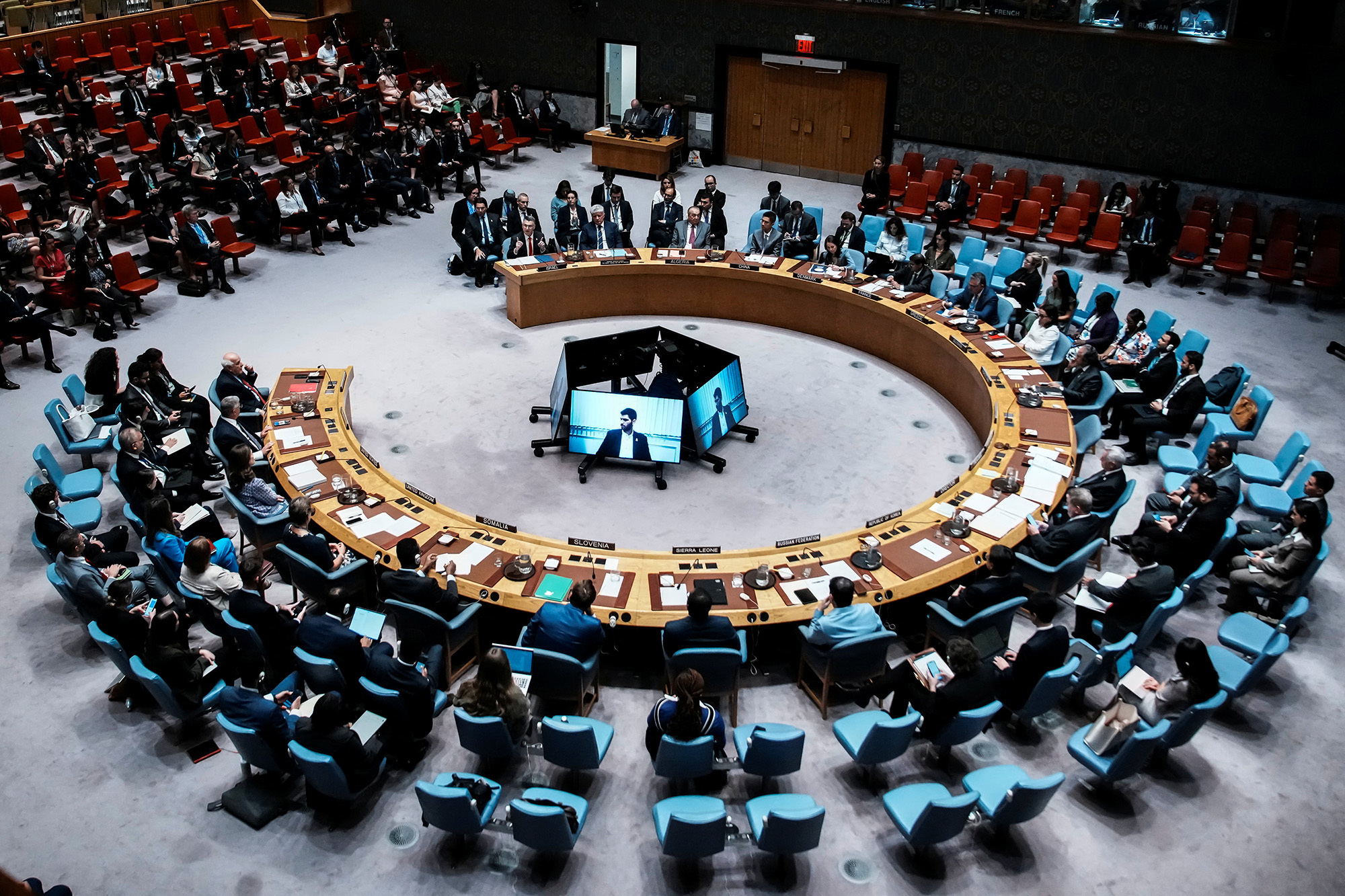Published: June 12, 2025, 12:43 AM WAT
By [Michael Bright], AI Reports Blog
In a landmark move for technological advancement, Nigeria has officially launched the Nigeria AI Scaling Hub in collaboration with the Gates Foundation, as announced by the Federal Ministry of Communications, Innovation & Digital Economy (@FMCIDENigeria) on June 4, 2025. This multi-stakeholder initiative aims to accelerate the responsible development and deployment of AI-driven solutions across critical sectors—health, education, and agriculture. Timed alongside Bill Gates’ recent visit and the conferment of Nigeria’s prestigious Commander of the Order of the Federal Republic (CFR) award, this hub marks a pivotal step in harnessing AI to address some of the continent’s most pressing challenges.
A Strategic Partnership with Global Impact
The Nigeria AI Scaling Hub was unveiled during a Memorandum of Understanding (MOU) signing ceremony in Abuja, bringing together government agencies, private sector tech companies, academia, and development partners. The Gates Foundation, a long-standing advocate for innovation in Africa, joins forces with the ministry and Lagos Business School to coordinate the scaling of mature AI solutions. Uche Amaonwu, Nigeria Country Director at the Gates Foundation, emphasized the transformative potential of AI, stating, “We’re proud to support the Nigeria AI Scaling Hub… investing in local talent and innovation to ensure the benefits of AI reach those who need them most.”
This launch coincides with a significant moment in Nigeria’s relationship with Bill Gates. On June 3, 2025, President Bola Ahmed Tinubu conferred the CFR award on Gates, recognizing his decades-long commitment to global health, polio eradication, education, and agricultural development. During his visit, Gates engaged with Nigerian officials on primary healthcare reforms, reinforcing the hub’s focus on health innovation. The Gates Foundation’s recent pledge of $200 billion over 20 years to improve healthcare across Africa—highlighted in his June 2, 2025, speech in Addis Ababa—further underscores the financial and technological backing for this initiative.
Aligning with Nigeria’s AI Vision
The hub’s establishment builds on Nigeria’s newly drafted National AI Strategy, a 2025 milestone that outlines a framework for responsible AI deployment. Dr. Tijani, a key figure in the ministry, highlighted the government’s progress in AI adoption, noting that the strategy will guide the hub’s efforts to enhance health outcomes, strengthen education systems, and boost agricultural productivity. This aligns with global trends, as the OECD.AI platform reports that AI is already a crucial part of daily life, with Nigeria positioning itself as a leader in sub-Saharan Africa’s AI landscape.
The hub’s multi-sector approach addresses Nigeria’s unique challenges. In health, it draws inspiration from Rwanda’s AI-enabled ultrasound program, praised by Gates in 2025 for identifying high-risk pregnancies in low-resource settings. In agriculture, AI tools could optimize crop yields amid climate change pressures, while in education, they promise to bridge gaps in access to quality learning. With over 500 AI startups reported by Techpoint Africa in 2025, Nigeria’s tech ecosystem is ripe for such an initiative.
Addressing a Funding Gap with Private Innovation
The launch comes at a critical juncture, as U.S. foreign aid cuts under the “America First” policy—announced in 2025—have created a $50 billion gap in global health and development funding. This reduction, part of President Donald Trump’s administration strategy, has shifted reliance toward private philanthropy and public-private partnerships. The Gates Foundation’s involvement fills this void, with Amaonwu hinting at a $7.5 million AI commitment over the next three years to support the hub. This investment will empower local innovators with bold ideas, fostering a sustainable model for AI scaling.
Critics, however, have raised concerns about the influence of such partnerships. Social media discussions, including posts from
@jcokechukwu on June 3, 2025, have questioned Gates’ philanthropy, citing allegations of promoting GMOs and population control measures. These debates, while contentious, highlight the need for transparency and accountability as the hub progresses.
A Model for Africa’s AI Future
The Nigeria AI Scaling Hub serves as a blueprint for how governments and partners can collaborate to leverage AI for societal good. Rwanda’s success with AI ultrasound—supported by the Gates Foundation with $370 million annually from 2023 to 2027—demonstrates the potential for scalable health innovations. Similarly, the hub’s focus on local talent and multi-stakeholder engagement could inspire other African nations to adopt AI strategies tailored to their needs.
As of 12:43 AM WAT on June 12, 2025, the hub is poised to become a catalyst for Nigeria’s digital transformation. With the Gates Foundation’s financial muscle and Nigeria’s youthful population—over 60% under 25, per the World Bank—the stage is set for a new era of innovation. The hub’s success will depend on its ability to navigate geopolitical tensions, currency devaluations, and public skepticism while delivering tangible results.
Looking Ahead
The Nigeria AI Scaling Hub represents a bold step toward a future where AI empowers every Nigerian. As the partnership deepens, we can anticipate breakthroughs in healthcare diagnostics, educational access, and agricultural efficiency. Stay tuned to AI Reports Blog for the latest updates on this transformative initiative and its impact on Africa’s AI landscape.
Key Takeaways
- Launch Milestone: The Nigeria AI Scaling Hub, launched on June 4, 2025, with the Gates Foundation, targets AI solutions in health, education, and agriculture.
- Global Backing: Bill Gates’ $200 billion pledge and CFR award highlight the initiative’s international significance.
- Strategic Framework: Nigeria’s 2025 National AI Strategy supports the hub’s responsible AI deployment goals.
- Funding Context: U.S. aid cuts create a $50 billion gap, making private partnerships like this critical.
- Innovation Model: Rwanda’s AI ultrasound success offers a blueprint for the hub’s ambitions.
Follow AI Reports Blog for more insights into the evolving world of artificial intelligence!




